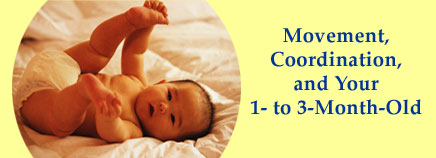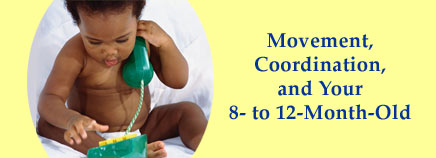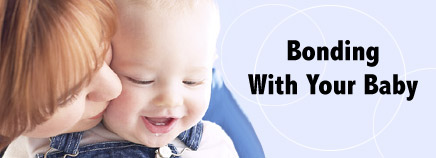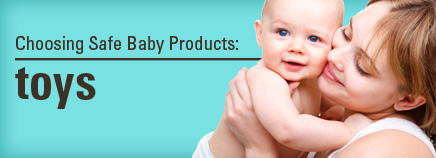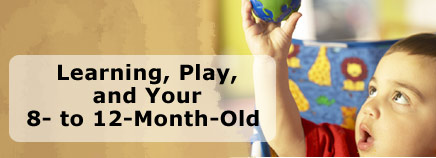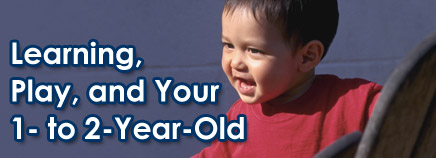The reflexes they had just after birth start to disappear as babies this age gain more control over their movements and interact more with the people and things around them. What Can My Baby Do? During the first few months of life, infants start to develop the skills and the strength …
Movement, Coordination, and Your 8- to 12-Month-Old
From scooting to crawling to cruising, babies learn how to get around during these months. So now is the time to childproof your home, if you haven’t already. Be especially careful to gate staircases and block off rooms that you’d rather your baby didn’t explore. How Is My Baby Moving? …
Bonding With Your Baby
Bonding is the intense attachment that develops between parents and their baby. It makes parents want to shower their baby with love and affection and to protect and care for their little one. Bonding gets parents up in the middle of the night to feed their hungry baby and makes them …
Choosing Safe Baby Products: Toys
All toys you select for your baby should meet safety standards. The tips below can help you find safe toys for your little one. Once the toys are at home, check them often for loose or broken parts. What to look for: Always follow all manufacturers’ age recommendations. Some toys have small …
earning, Play, and Your 8- to 12-Month-Old
Your child has gone from tiny newborn to curious infant, reaching out and exploring his or her surroundings. That curiosity and readiness to learn will continue as your baby becomes more mobile during these next few months. What Is My Child Learning? Your little one will make great strides in learning. Play …
Learning, Play, and Your 1- to 2-Year-Old
What Your Toddler Is Learning Kids transition from babies to toddlers during the second year of life, as tentative first steps give way to confident walking. As your toddler starts exploring, be sure to childproof your home to prevent household accidents. Language. Kids this age also make major strides in understanding language and …
Learning, Play, and Your 1- to 3-Month-Old
What Your Baby Is Learning After learning to recognize your voice, your face, and your touch, and to associate them with comfort, your baby will start responding even more to you during these months — and will even give you a smile! Babies this age spend more time awake and alert and become …
Learning, Play, and Your 4- to 7-Month-Old
What Your Baby Is Learning By 4 months old, your baby has learned to recognize you and familiar caregivers, focus and pay attention to things, and actively engage your attention. Your infant will learn to sit during this time, and in the next few months will begin exploring by reaching out …
Reading Books to Babies
Jacob loves books. His mom knows this because when she sits down to read to him every night, he waves his arms excitedly. His favorite page of “Goodnight Moon” shows a cow jumping over the moon. He squeals and reaches for the book every time he sees it. When she …
What Toys Can Help Improve a Baby’s Motor Skills?
I want to give my 11-month-old son toys that will help his motor skills. Do you have any suggestions? – Rebecca Babies this age may be crawling, “cruising,” walking, and grasping things all around them. To encourage exploration and fine motor skills, try giving him toys that have a cause …

